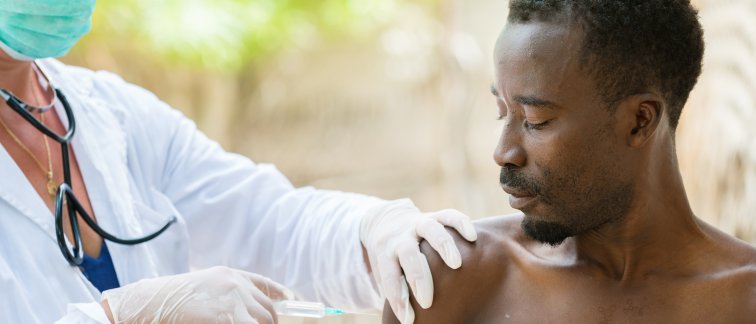Uganda has been struggling with an outbreak of the highly deadly Ebola virus since September, from which 55 people have now died. There are so far 141 confirmed cases, of which 20 infections have been found in the metropolitan city of Kampala. Still, the World Health Organization (WHO) is not worried that this outbreak will grow into a devastating pandemic like the one in West Africa in 2013-2016, when another variant of the virus took the lives of more than 11,000 people.
“There is indeed no reason to worry that this outbreak will grow into a devastating pandemic”, says Martin Grobusch, Professor of Tropical Medicine affiliated with the Amsterdam UMC, who is closely monitoring the situation and sees a flattening infection curve.
The Ugandan government says they have the outbreak under control and in doing so, no half measurements have been taken. The measurements include a entry ban and a curfew in the two districts where the first cases were documented. Furthermore, cafes and churches have been closed. After a two-year school closure due to the coronavirus - the longest in the world, schools will close again next week.
Experimental vaccines
The variant that is currently active in Uganda is called the ‘Sudan’ variant. Prof. Grobusch: “This Sudan variant has not surfaced to this extent for some time, so the outbreak provides an opportunity to test experimental vaccines that have been on the shelf for some time in practice”. That might sounds a bit harsh, but after all, you need disease cases to develop a vaccine. Next week, the first shipments of clinical vaccine trials will be shipped out to Uganda, WHO CEO Tedros Adhanom Ghebreyesus said this week.
Another reason Uganda is suitable for this clinical trial is its accessibility: it is easier to set up a testing infrastructure in Uganda than in a remote rainforest, where the virus normally emerges.
Double-blind testing
Is it bothersome that Ugandans are being used to test a vaccine from a Western pharmaceutical company? "Ebola vaccines are there primarily to contain outbreaks locally. This vaccine is not going to be sold to tourists later for big money," Prof. Grobusch says. Prof. Grobusch: "This is something that is especially necessary and meaningful for the Ugandan population. Previously, there have been outbreaks of the Zaire Ebola variant, which could be quickly brought under control thanks to similar research. In doing so, it is also not a case of Western consortia invading Uganda and disappearing with the research data. This research is being led by Ugandan scientists."
"Still, there are certainly ethical dilemmas associated with clinical vaccine research," Grobusch says. That you need the disease to develop a working vaccine against it is one thing. That you need double-blind testing, meaning, that there is a group that thinks they are vaccinated but in reality are not - is another. Prof. Grobusch: "It's hard to escape that. Besides, the control group does receive the real vaccine a few days later."
Preventive administration
"About the risks of side effects, the test participants are well informed," says Prof. Grobusch. It is also important to keep in mind that the vaccine is preventive. The study is conducted among people who may have been exposed to the virus, such as healthcare workers or relatives of a deceased patient. "No testing will be done on feverish Ebola patients who are already in the hospital," Prof. Grobusch says.
Moreover, Ebola vaccines are first tested on monkeys, where the disease has a similar course to humans. Prof. Grobusch: "And besides: possible side effects will probably always outweigh the 50 percent chance of dying from the disease."
Source: read the original (Dutch) article by Joris Belgers in Trouw here.

